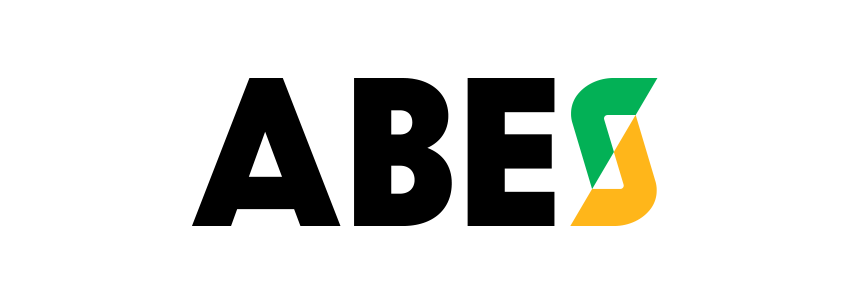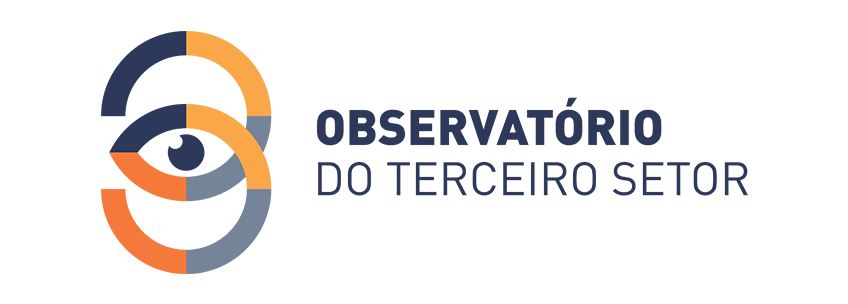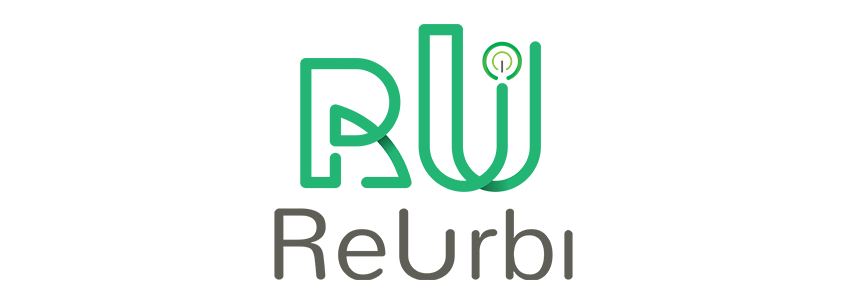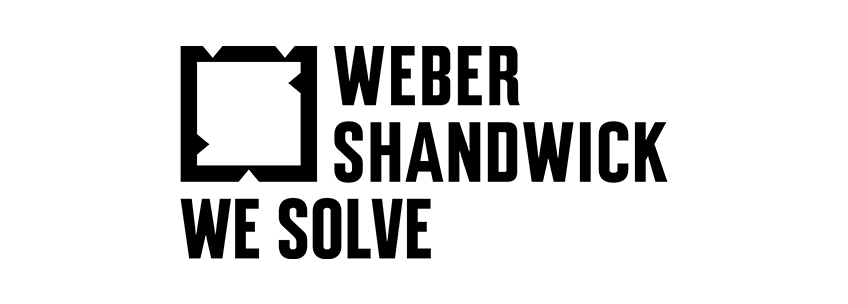Mobilization to Reduce Inequality in Brazil
know moreTHE “Mobilization to reduce inequality” is the name of the campaign launched by ABES, in partnership with ReUrbi it's the Third Sector Observatory, with support from the agency Weber Shandwick🇧🇷 It aims to support social inclusion projects that promote training in the digital area, through the resources obtained by recycling IT equipment (notebooks, PCs, racks, etc.) discarded by companies that adhere to the initiative.
Companies participating in the mobilization will benefit from exemption from logistics costs, will receive legal documentation of disposals and a Socio-Environmental Impact Report (RIA) with environmental, economic and social impact information for monitoring and use in their Sustainability Reports and Social responsability. Companies will be able to indicate the social projects that will receive feedback on resources generated through the initiative.
All companies in the country, whether ABES members or not, can participate in this movement with a positive impact on the environment, always complying with ESG (Environment, Social and Governance) practices, in line with the UN Global Compact.
Organizations that send their IT equipment to the initiative, after completing the recycling and reconditioning process, will receive a seal and certificate of “Company participating in the Mobilization to Reduce Inequality in Brazil”, issued by the partners of this initiative. Upon authorization, the company's logo will be inserted on this page and mentioned in institutional promotional materials and in press releases related to the mobilization.
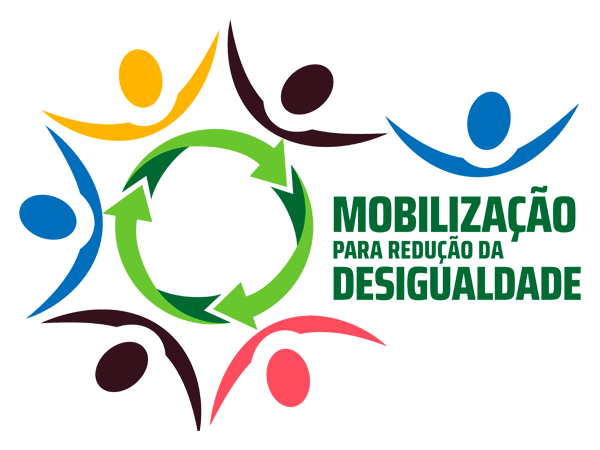
Initiative
Support
Did you know that:
millions of tons of electronic waste generated
It is estimated that Brazil currently generates 2.1 million tons of electronic waste per year
%
IT equipment could be refurbished
On average 30% of discarded IT equipment would be able to be reconditioned and reinserted into the economy and the other 70% can be recycled
people are impacted by every refurbished equipment
Each refurbished equipment, if applied to a social inclusion project, impacts 11.8 people per year. By 2023, we would have more than 880 thousand people benefited
10 Questions and Answers about Mobilization
1) Which companies can participate in the mobilization?
All companies in the national territory, associated with ABES or not, can participate. They must have IT equipment and be interested in generating a positive impact on the environment and society, in line with best environmental, social and governance (ESG) practices. Disposal will generate financial results to be allocated to social-digital inclusion and qualification projects.
2) What are the advantages for companies that join the mobilization?
The participating company will not incur expenses with reverse logistics, it will receive the due legal documents and certificates referring to the avoided impacts on the environment, such as write-off of assets and socio-environmental report. The company will be able to indicate the social project that will be assisted with the resources obtained through the initiative.
This program ensures, free of charge, simply and easily, that companies, regardless of their size, adhere to the best socio-environmental governance practices, in line with the UN Global Compact. In addition, the program offers a suitable purpose for disused products, protecting the environment and contributing to socio-digital inclusion and qualification.
It is important to note that Law No. 12,305/2010, which instituted the National Solid Waste Policy (PNRS), implemented shared responsibility for the life cycle of products, therefore, this is an easy, socially responsible and advantageous way to comply with law.
3) Does joining the mobilization allow the participating company to meet any Sustainable Development Goal (SDG) of the Global Compact of the United Nations (UN)?
Yes. The participating company is able to meet 8 of the 17 SDGs through the reverse logistics service and support for socio-digital inclusion projects, namely:
SDG 4 - Quality Education
SDG 8 – Decent work and economic growth
SDG 9 - Industry, innovation and infrastructure
SDG 10 – Reduction of inequalities
SDG 11 – Sustainable cities and communities
SDG 12 - Responsible consumption and production
SDG 13 – Action against global climate change
SDG 17 - Partnerships and means of implementation
4) What is the minimum amount of equipment that the company needs to discard to participate in the project?
To make the collection and logistics process viable, the minimum weight required is 100 kg of IT equipment. ReUrbi undertakes to assume the costs of Reverse Logistics throughout Brazil in order to exempt any participating company from expenditures in this regard. We emphasize the importance of detailing what will be discarded, with a complete collection and contact address. Visit the initiative's website and find out how to schedule your collection. ReUrbi has been dedicated for 7 years to the reverse manufacturing segment and the environmentally correct destination of WEEE - Waste Electrical and Electronic Equipment, generated by companies, government agencies, schools and other institutions that adopt the best practices of sustainability and governance, is licensed by CETESB for this activity and duly registered with IBAMA.
5) What are the steps for the company to participate in the project?
Companies that have electronic IT equipment that want to contribute to the environment and invest in social projects must follow the instructions on the initiative's page.
ReUrbi will contact you to schedule the removal of equipment, reverse engineering, remanufacture of equipment and donation of resources to social projects indicated by the donating company and/or by ABES. Participation is free of charge and valid for the entire national territory.
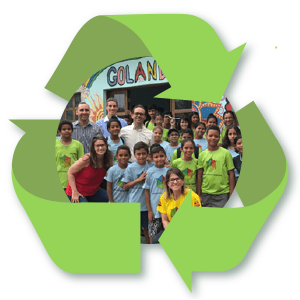
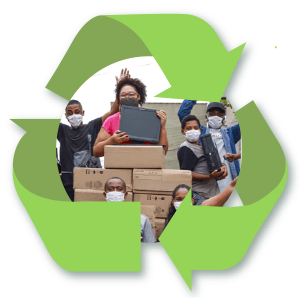
6) After being discarded by companies, what happens to IT electronic equipment?
Once collected, the material goes to the first screening stage, when the team of technicians performs the sanitization of data and properties and assesses which equipment can still be reconditioned. Items that do not have this possibility are sent for dismantling. In it, the equipment is weighed, disassembled, defaced and separated by type (plastics, metals, electronic boards, cables, etc.). The last step is recycling.
7) What is the destination of the refurbished equipment?
Equipment reconditioned after the data and property sanitization process goes to the production line of semi-new Remakker® IT and has a certificate of origin, quality assurance and technical assistance.
5% of this equipment is donated as a loan by ReUrbi for social projects and the rest are primarily sold to third sector organizations and to assist individuals at affordable prices.
The reconditioning complies with Environmental Legislation and the principles of Circular Economy, mitigating the environmental impact. Remakker® equipment has a reverse logistics option at the end of its life cycle.
8) Why is part of the equipment sold and not donated to third sector organizations and consumers?
It is with this income that ReUrbi assumes the costs of Reverse Logistics throughout Brazil and the recycling and reconditioning process, complying with Environmental Legislation, Certifications and other federal, state and municipal requirements.
ReUrbi contributes to changing the linear economic model (extraction, production and disposal) to a circular economy model, with conscious consumption aiming to reduce the impact on the environment and social inequalities.
With the appreciation and fair remuneration in disposal, recycling and responsible disposal, equipment reconditioning extends the useful life of IT equipment. In addition, with the sale of semi-new IT equipment at affordable prices and the application of part of the results to social inclusion projects, ReUrbi makes this new Circular Economy model sustainable with zero impact on the environment.
9) Which social projects will the campaign allocate the equipment? How are they chosen?
The company participating in the campaign may, together with ABES and the Third Sector Observatory, indicate a social project to be attended to. ABES, as the representative of approximately 2,000 companies in the technology sector, recommends that the projects have as their mission to allow access to education and employability, as it believes that the path to a fairer and more inclusive society necessarily involves digital inclusion.
According to the IBGE, in 2018, 14.9 million households were without internet access and corresponds to 20% of the 71.7 million Brazilian homes. In other words, one in five homes does not have internet access, considering the use of a computer, cell phone or tablet. According to ICT Education Survey 2019, 39% of urban public school students do not have a computer or tablet at home. In private schools, the index is 9%. That is why ABES believes that projects like these are urgent and can reduce social inequality in Brazil.
10) I have a social project aligned with the campaign's purpose. How can I sign up to receive the resources?
Contact the Third Sector Observatory – Telephones: (11) 2476-9531 and (11) 2476-9532; WhatsApp from the Observatory: (11) 98851-2317; Email: contato@observatorio3setor.org.br.
The Third Sector Observatory gives voice to issues of the social universe – whether in the areas of education, health, human rights, culture, environment, among others – that are outside the agenda of the traditional press. It shows the problems, challenges, gaps and solutions that can be replicated and gain scale, and helps in the development of proposals to expand the transformation and intervention power of citizens.

Script
To make disposal possible, please answer the questions below in the script we have prepared for you, fill the inventory with the equipment available for disposal (files available for download) and send to the email address below.
a) Collection address (complete with zip code)
b) CNPJ
c) Name and telephone number of the responsible person at the collection site
Allowed collection time
How the equipment is packed (loose, in boxes, etc.)
Issue outgoing invoice? (Only align, as we can issue batch incoming invoices)
d) Disposal weight: () up to 500 kg | () up to 2.5 T | () 7 T or more
e) If they issue the MTR, the classification for transporting electronics is Class II B - Code 16 02 14 - Destination R13.
We make ReUrbi contacts available for clarification and sending the requested information:
Telephone: (12) 3958-4701 - Deborah
Email: contato@reurbi.com.br - Josiane
Site: www.reurbi.com.br



